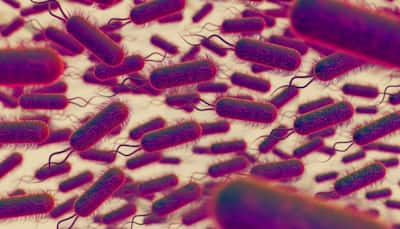Menopause, the natural process where a woman’s menstrual periods stop permanently, typically occurs between ages 45 and 55, marked by a decline in fertility and hormonal changes, leading to various symptoms and a new phase of life. The period leading up to menopause, called perimenopause or the menopausal transition, can last for several years, with fluctuating hormone levels causing symptoms like irregular periods, hot flashes, and mood swings. Different people have different menopause symptoms. Most often, periods are not regular before they end.
Skipped periods during perimenopause are common and expected. Often, menstrual periods skip a month and return. Or they skip a few months and then start monthly cycles again for a few months. Period cycles tend to get shorter in early perimenopause, so periods are closer together. As menopause gets closer, periods get farther apart for months before they end.
You can still get pregnant during this time. If you’ve skipped a period but aren’t sure it’s due to menopause, think about taking a pregnancy test.
After a woman has not had a period for 12 consecutive months, she is considered to be in postmenopause
Vasomotor Symptoms: Hot flashes, night sweats.
Genitourinary Symptoms: Vaginal dryness, pain during sexual intercourse, urinary urgency, and incontinence.
Mood Changes: Irritability, depression, anxiety.
Other Symptoms: Sleep problems, joint aches, headaches, forgetfulness, changes in skin conditions, and hair loss.
As you enter your late 30s, your ovaries start making less of the hormones that control your period. These are called estrogen and progesterone. In your 40s, your menstrual periods may get longer or shorter, heavier or lighter, and happen more often or less often. In time, your ovaries stop releasing eggs. Then you have no more periods.
Surgery that removes the ovaries, called oophorectomy. Ovaries make hormones, including estrogen and progesterone, that control the menstrual cycle. Surgery to remove the ovaries causes instant menopause.
These cancer therapies can cause menopause. Radiation therapy aimed at the pelvis, belly and lower spine can cause menopause. Radiation to the whole body for stem cell transplant also can cause menopause.
: About 1% of people who have menopause get it before age 40. This is called premature menopause. Premature menopause may result from the ovaries not making the usual levels of hormones. It can happen from gene changes or an autoimmune disease.
After menopause, your risk of certain medical conditions increases.
When your estrogen levels fall, your risk of cardiovascular disease increases.
Weakened bones, called osteoporosis. This condition causes bones to become brittle and weak, leading to a greater risk of breaking bones. During the first few years after menopause, you may lose bone density quickly
As the tissues of your vagina and urethra change, you may have sudden, strong urges to urinate often. Then you might lose urine, called urge incontinence. Or you might lose urine with coughing, laughing or lifting, called stress incontinence. You may have urinary tract infections more often.
Menopause causes the vagina to get drier and lose its stretch. This can cause discomfort and slight bleeding during sexual intercourse. Also, less feeling in the area may lessen your desire for sex, called libido.
Many women gain weight during and after menopause because calorie burning, called metabolism, slows.
While menopause brings about physical and emotional changes, many women continue to live full and active lives.
There are various ways to manage menopausal symptoms, including lifestyle changes (exercise, healthy diet, stress reduction), and in some cases, hormone therapy or other medication
Stay informed on all the , real-time updates, and follow all the important headlines in and on Zee News.











